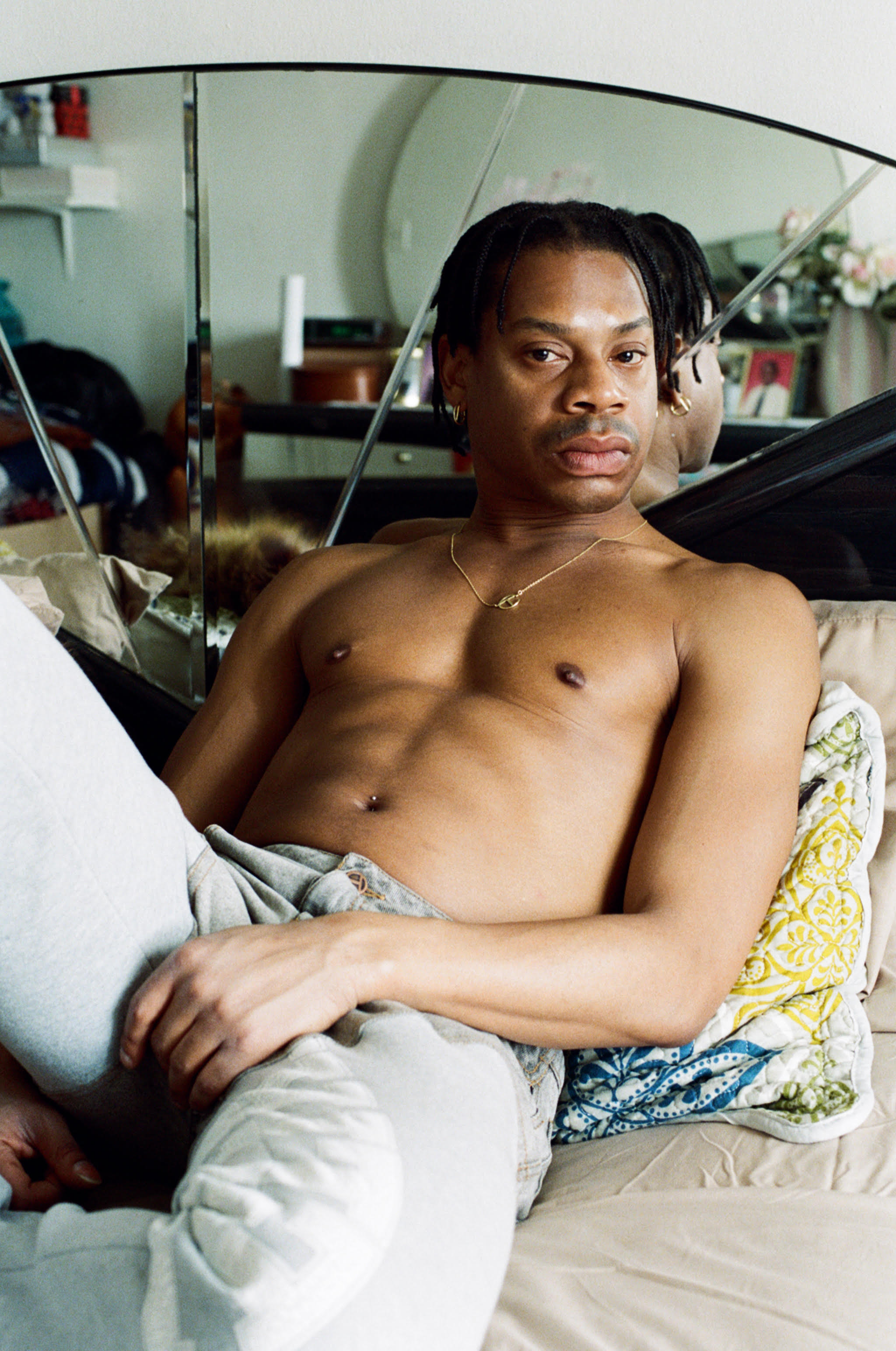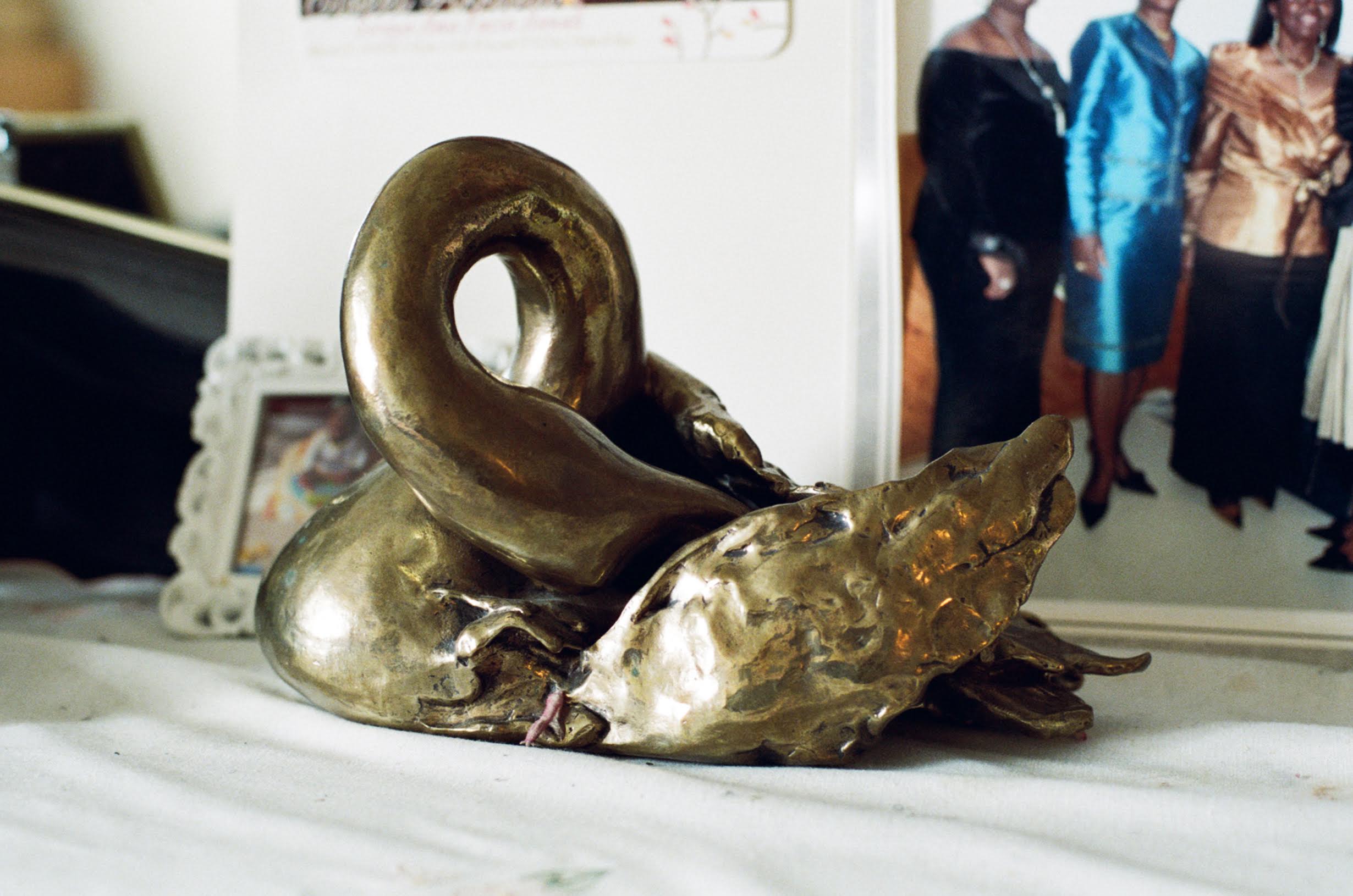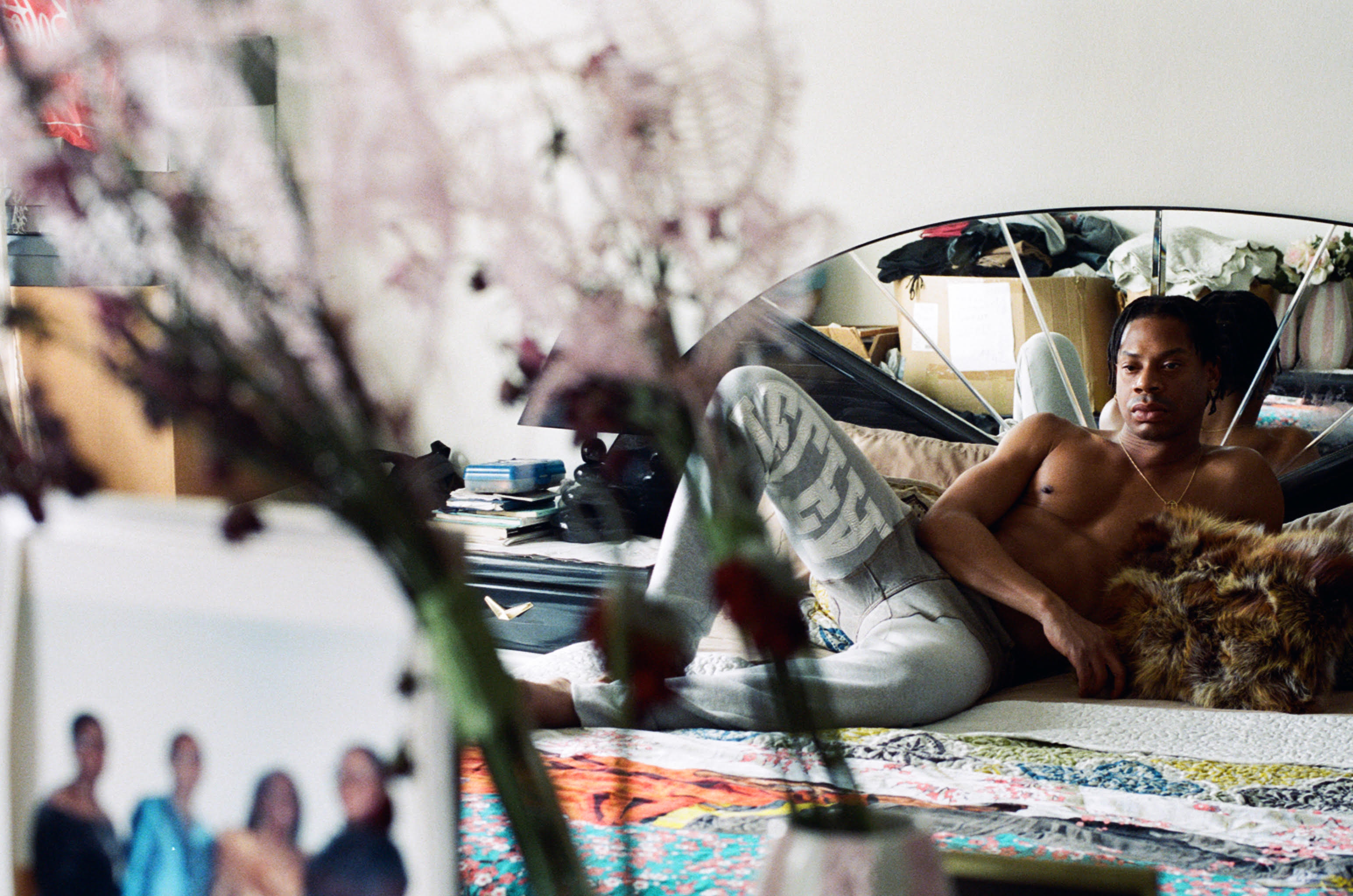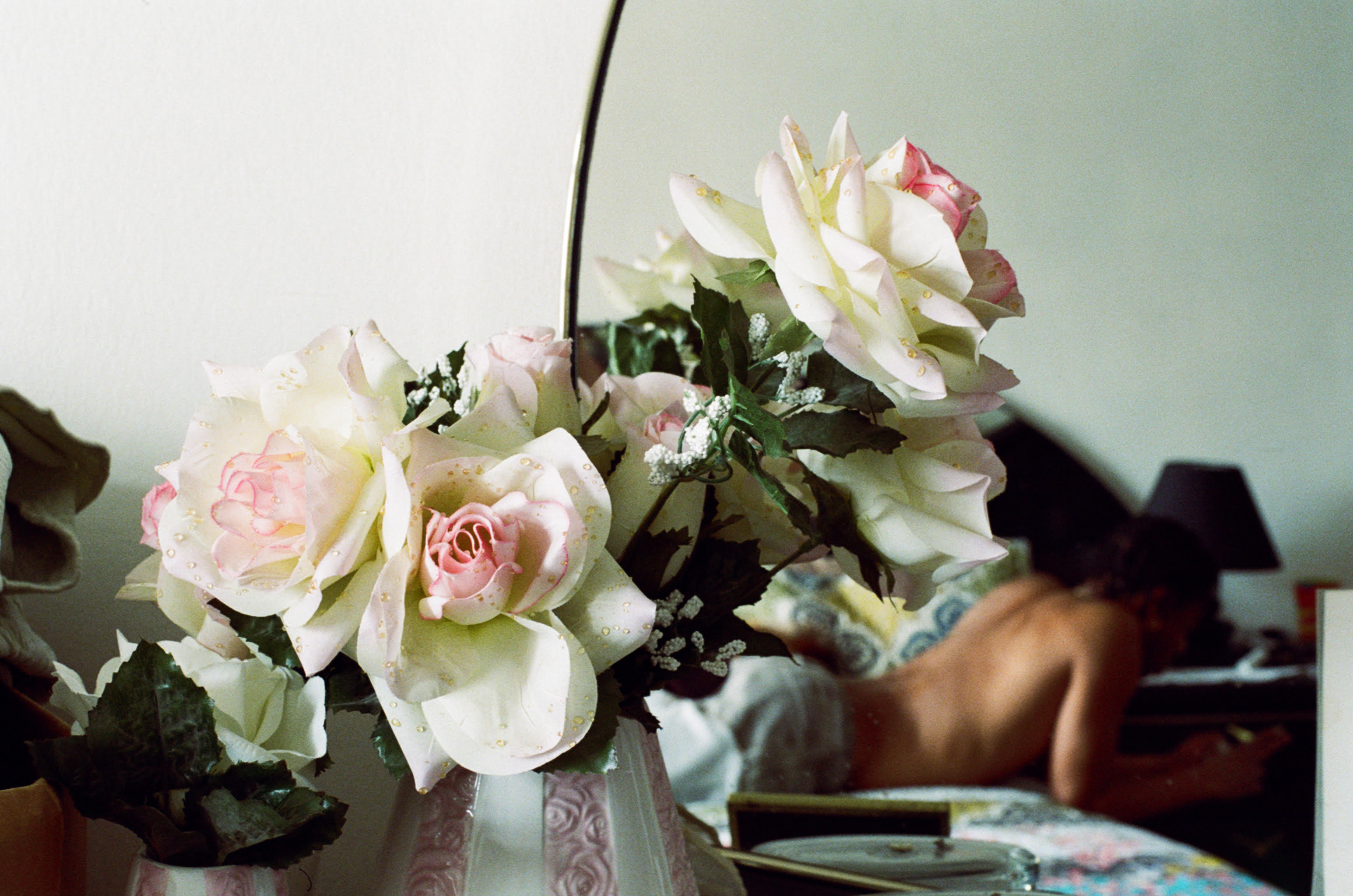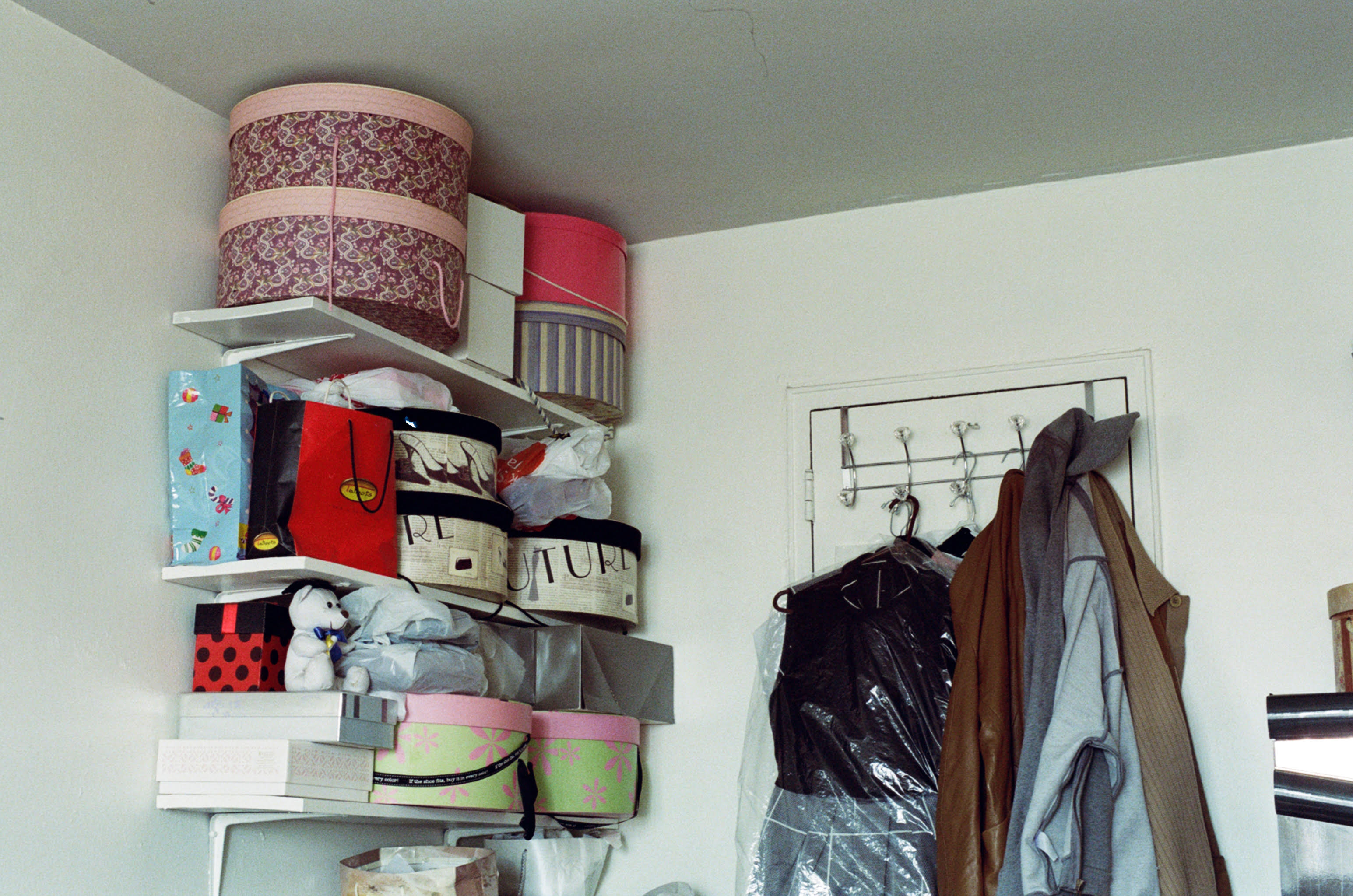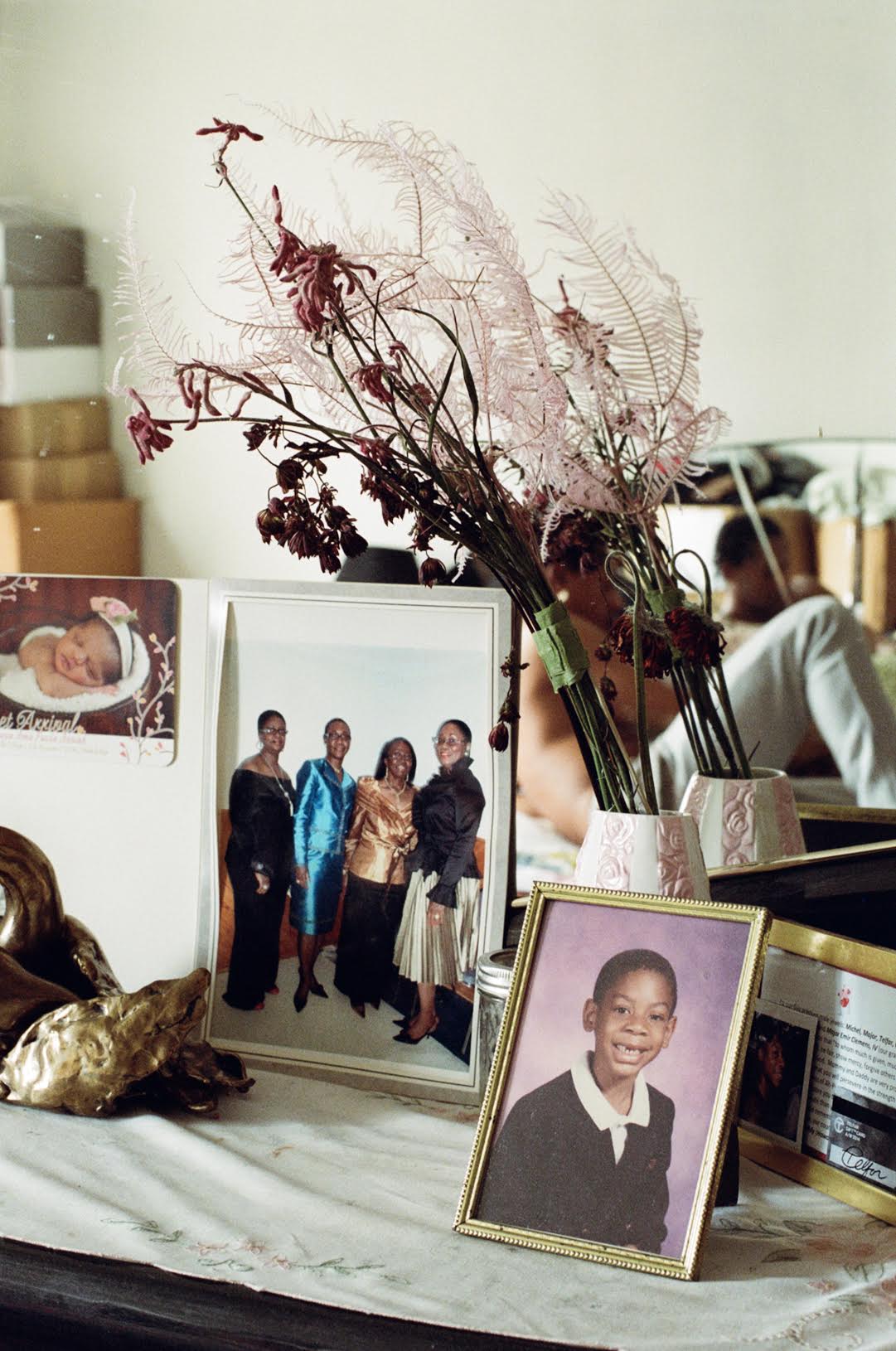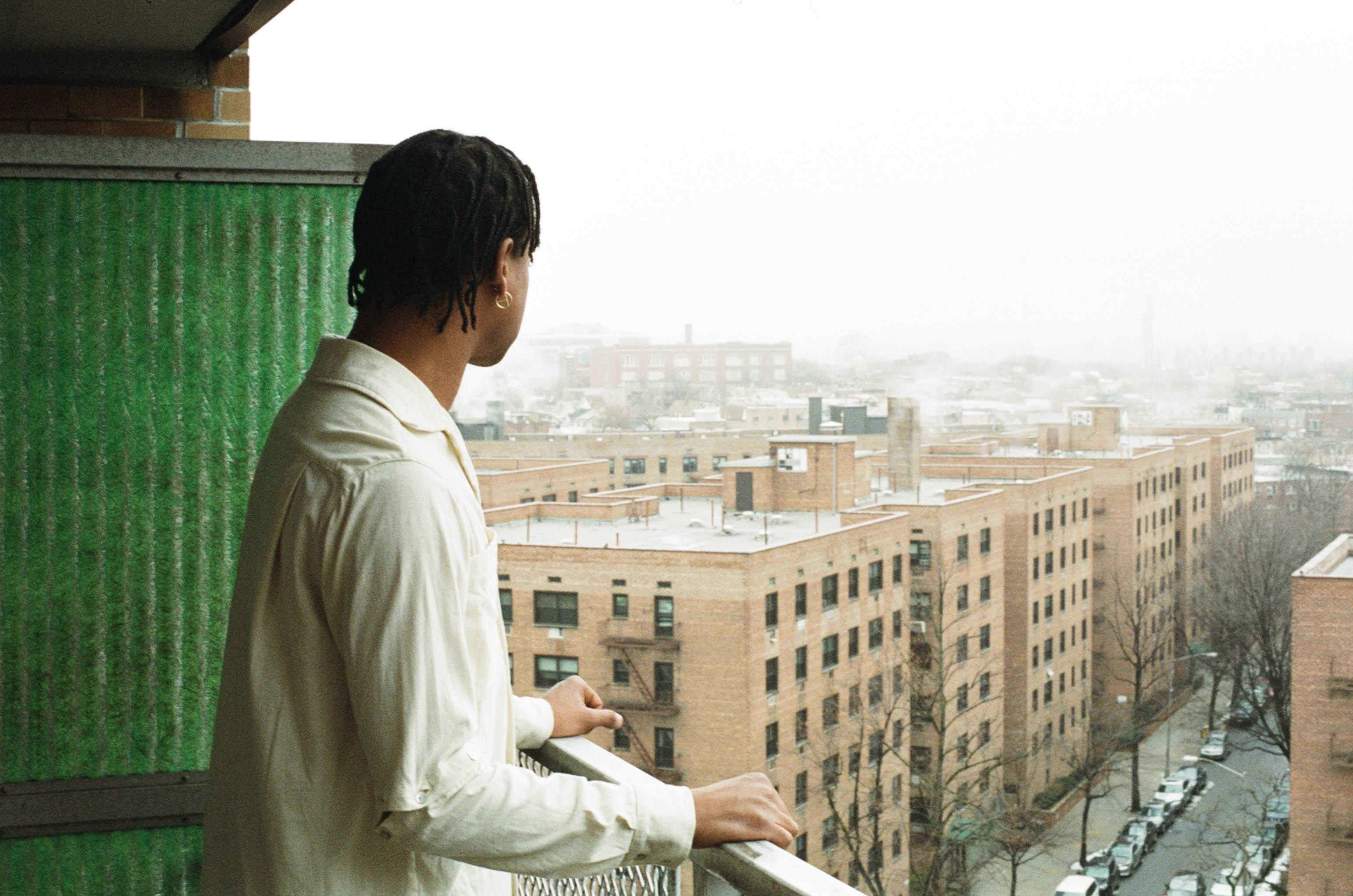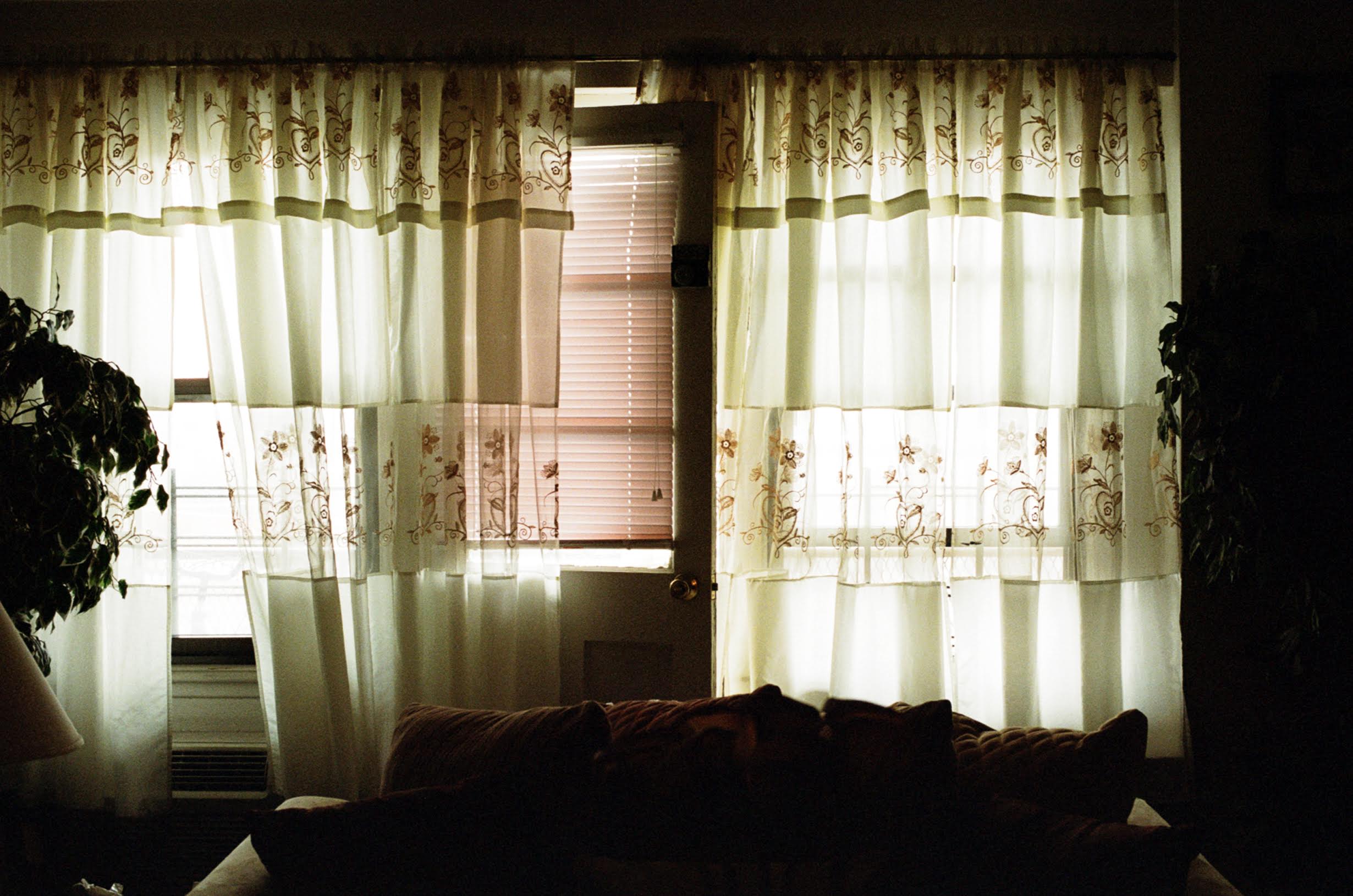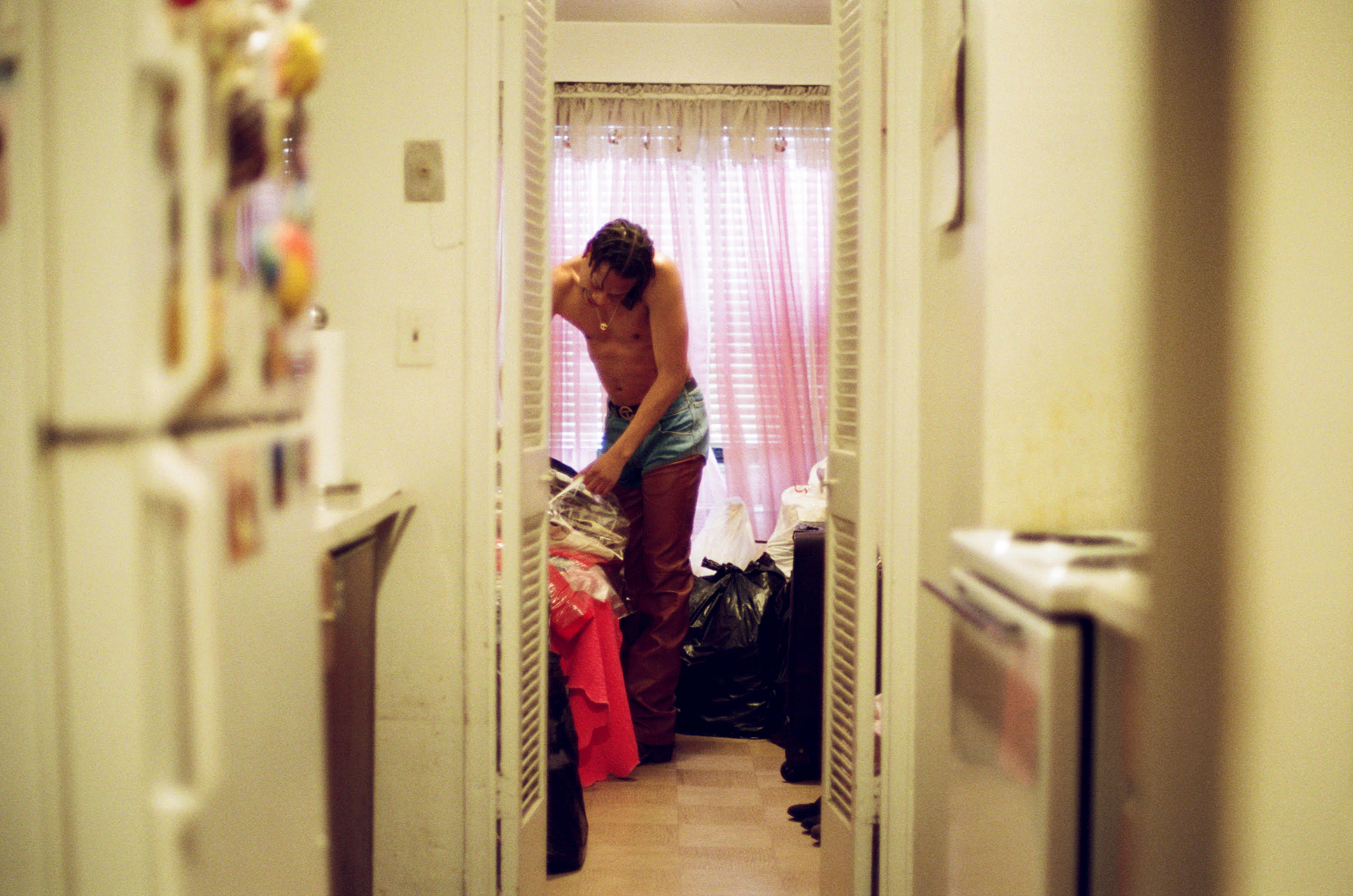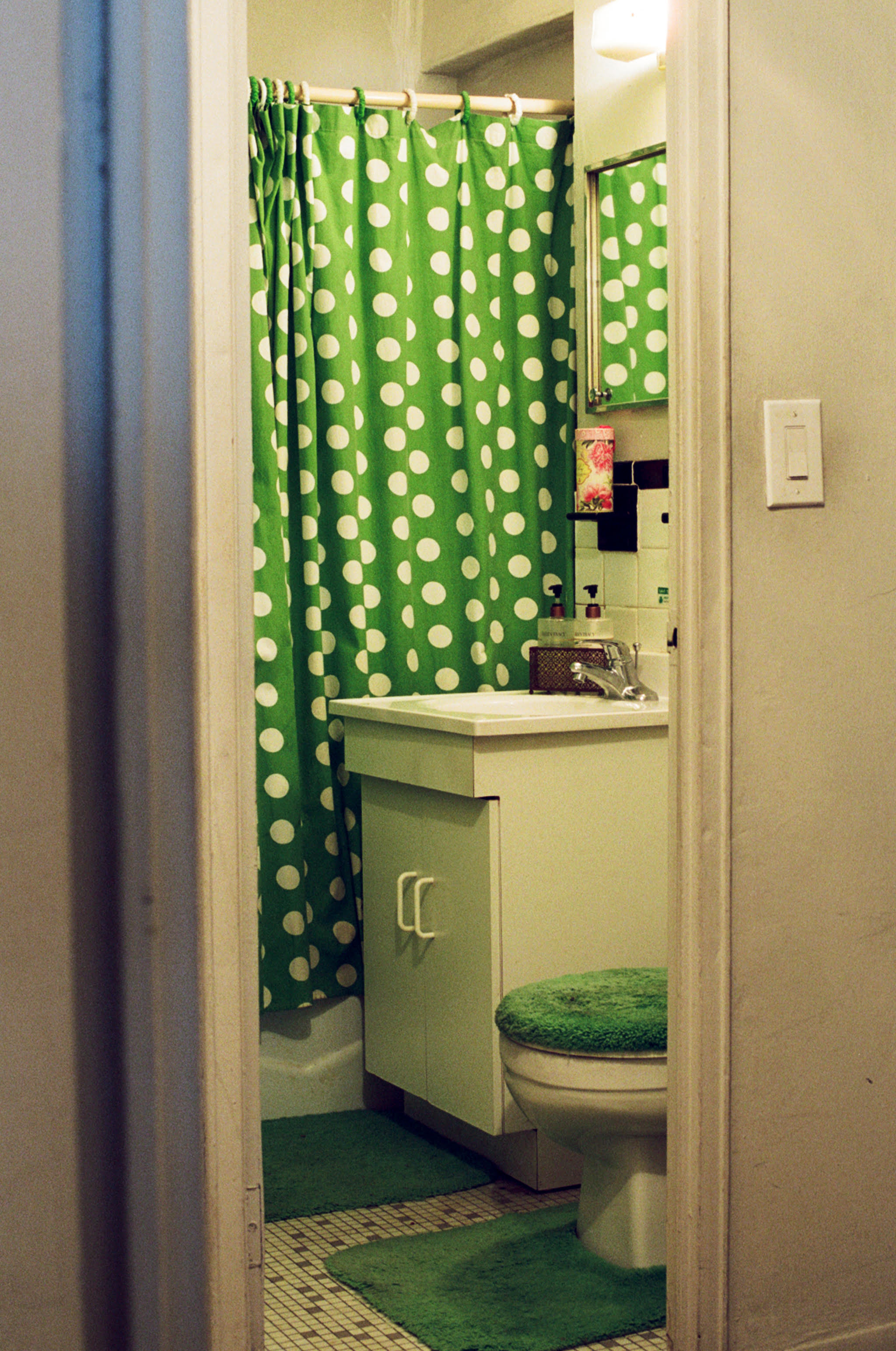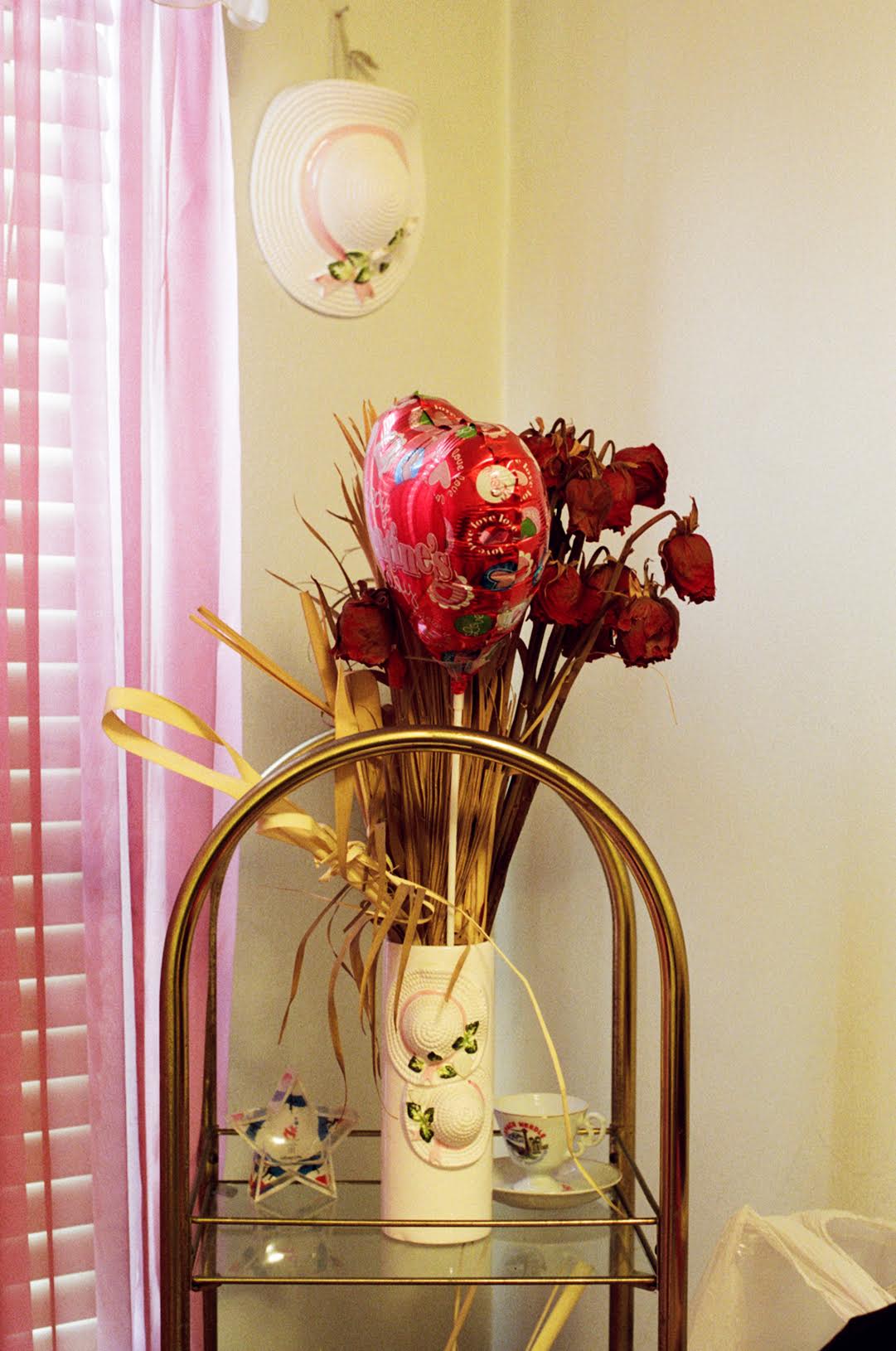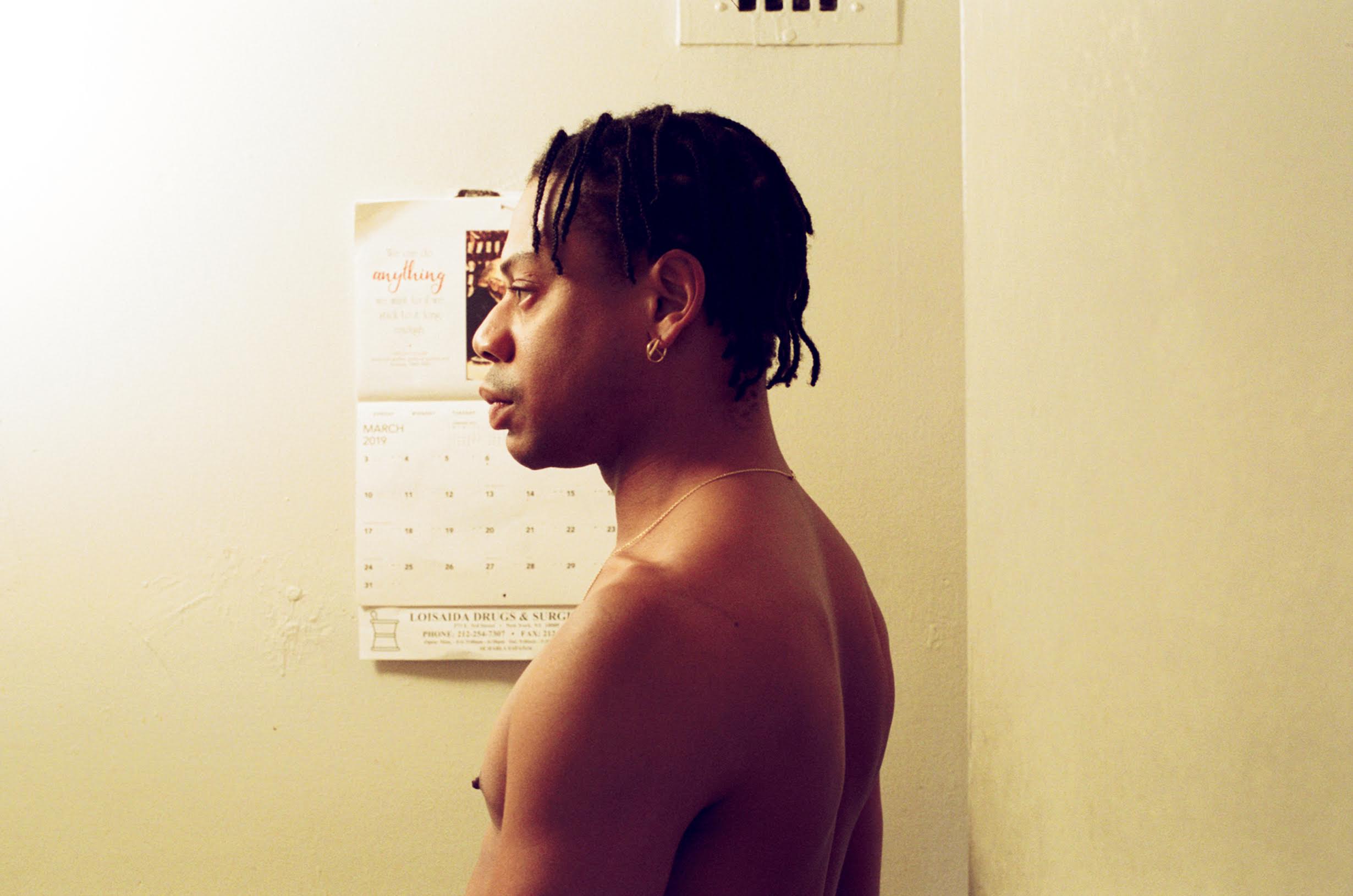TELFAR CLEMENS
Interview by Michael Bullock
Photography by Benjamin Fredrickson
Apartamento 23, 2019

New York City is the birthplace of the namesake-mega brand, pioneered by Ralph (Lauren) in the late ‘60s and perfected by a handful of designers who have used their personas and lifestyles to embed their clothes with aspiration, so that the very mention of their names—Calvin, Donna, Tommy, and even Tory—evokes an entire culture. More than simply buying a garment, their customers are purchasing their own small piece of the American dream.
New York City is also the birthplace of Telfar Clemens, the trailblazing designer that has recently become the newest member of that seemingly impenetrable club. The tag line for the Telfar brand is: not for you—for everyone’. Everybody for Clemens means: the queer kids on the dance floors of the clubs he DJs; his chosen family of artists and collaborators in Bushwick; his biological family in Maryland; the musicians of every genre, from punk to country, that perform at his shows; the fashion community in Paris, where his showroom is located; the factory workers in China where he spends half the year making his clothes; the citizens of his family’s homeland, Liberia; the Century 21 shoppers of New York City; the White Castle employees and patrons all across America; and Budweiser drinkers worldwide.
Since 2005, Clemens has designed for this diverse cross section of humanity, infusing his offering of reconceived basics with an authenticity that pushes the conventions and expectations of the the type of culture a mass-market brand can foster. In 2017, when Telfar became the first black-owned company to win the game-changing CFDA/Fashion Fund award (one of American fashion’s highest honours), his supporters all wondered why it took Vogue 12 years to get on board. For this intimate interview, the exuberant designer invited us into his home in the LeFrak City development, located in Corona, Queens. On his childhood bed he shared his extraordinary journey and unanticipated perspective on American patriotism.
What’s the history of this apartment?
My aunts have lived in this building since 1977. I was born here in Queens but lived in Liberia from age one to five, then moved into this apartment in 1991. My parents moved my brother and me here to protect us from the first Liberian Civil War. Living in America was supposed to be temporary, but we never moved back. Since my parents didn't have papers, we couldn't officially rent this place, so we had to sublet. That situation lasted until the owner died in 2012. Then my aunt finally started renting it.
Where did you live before you moved back here?
I lived in Red Hook, Brooklyn, up until the year Ikea popped up in my neighbourhood and my rent went way up. At that moment I had just got my first order ever from Opening Ceremony. I had to make a choice: either continue my brand or put down a deposit on a new apartment. My Aunt Famatta was like, ‘OK, so this is what you're doing’, and invited me to live with her. At the time it seemed so far away, and moving in with family made me feel slightly defeated. My friend Isabel (Venero) also saved me. She was like, ‘Shit, so you got this big order but you can't fund production!’ She loaned me $5,000 to make it happen. Not long after that I was approached by my production partner.
So Isabel Verano and Aunt Famatta are the guardian angels of the Telfar brand?
Pretty much. Once I got here I started working on a new collection; it was so much better because my Red Hook apartment had no heat. I’ve had to endure a lot in order to make this happen. Before I'm a person, I’ve always had a business to support on top of my actual life. At the time I just felt like, ‘This thing needs to work out’. Now that it does, I'm still here, but I think this is the most comfortable place I could be. I'm almost still in shock from the last time I had to move.
The circular mirrored headboard is beautiful. It’s from the ‘70s?
Yeah, the aesthetic in here is like, damn! It’s kind of frisky, kind of Christian, kind of feminine.
Your aunt’s wall of hat boxes is all of those things!
Everyone I invite over for the first time is confused. They’re like, ‘Who lives here?’ and I explain that it’s a family house. When I first moved back, my entire operation was in this bedroom. This is still kind of my studio. I work in my office too, but this is the most comfortable place for me to work, because it's private.
What do you remember most about living here as a kid?
LeFrak City is my first memory of America. In Liberia, in the first five years of my life, most of the music, videos, and pop culture we saw was American; MC Hammer was the dance to do there at the time. When I got here in 1990 Technotronic was the first thing I heard, and then Tina Turner and Whitney Houston; and Butterfingers, the first time I came to this apartment and opened the refrigerator, it was full of American candy. And there was a White Castle and McDonald’s down the street.
Did you know what those were?
I feel like as soon as you step foot in this country you automatically know what a Happy Meal is. Up until then we had only eaten rice and chicken. At that time Liberia didn’t have fast food, so I had never seen a hamburger or a pizza before. I was like, ‘Pizza? That’s the thing the cartoon Ninja Turtles eat!’ When we got here, it seemed like a step up because it was all about the new, the fast, the convenient things that we had always heard about.
You weren’t freaked out by America?
I was excited by it. I was like, ‘Wow, new TV shows! And these kids at school are kind of cool, too! And the music’s kind of cool, too!’ But I do remember missing my parents, because they moved here a few months after us.
So that's why you have such a close relationship with your aunts.
Yeah, Aunt Famatta and Sedia are kind of like my mothers. They're my mom's older sisters, and they've always taken care of me. My mom came at the end of 1991. Then my dad switched with her, so he came here and she went back to get the rest of the family. When she returned there were 15 of us living here. Another uncle and aunt, my grandma and grandpa, my brother and four cousins.
How did you all fit?
We’d sleep here beside the bed with the blankets on the floor. And whoever got along would crash together. My parents slept inside that small room that we use as a pantry now.
When did you leave?
In 1993 we moved to Maryland. It was getting bad here: lots of drug dealing, and someone got shot in the basement. So, second grade was my introduction to suburbia, and I stayed there through high school. I left the day after graduation because it wasn't me. The excitement I had for this country all came from living in the city. I came back and was like, ‘I'm starting a clothing line’.
How old were you?
I was 15 and had started working on it in Maryland. I had an internship with these DC, T-shirt, silkscreen, streetwear dudes, and they gave me 25 T-shirts in return for helping them out. I cut them up. I was really into reconstructing clothes.
Was your line called Telfar from the start?
It was called Far Five, but people said, ‘Your name's cool. It should just be that’.
Is Telfar a traditional Liberian name?
No, my grandfather made it up. My mom named me Steven, and he looked at me and told her, ‘He needs a better name. He’s not a Steven. He’s Telfar’. People have told me it means star. I've looked it up. It doesn't. I don't know what it means, but I know there's a diamond mine named Telfar in Australia.
What’s it like to live with your aunt now that you're an adult? Is the feeling roommate or house quest?
It's more like a roommate situation. We each have responsibilities, but she takes on more because I’m away more than half the year, living in hotels. The only place I wash a dish is here. You know what I mean?
Is dishwashing truly what makes a house a home?! So you're in China the rest of the year?
I've been going there for three months per collection, and I make two each year. So I’m there for six months.
Wow, your life is half LeFrak City and half China. That’s the most contemporary arrangement.
And Paris: that's where it all goes down. And Fort Lauderdale and Ohio. It's a random trajectory of places.
Paris is for sales?
Yeah, showroom presentations. The end goal is to sell in Paris whatever you’ve made in China, and then bring it back to New York to show it. China, Paris, New York. China, Paris, New York.
So that's also why you haven’t outgrown this apartment arrangement.
Because I'm never here. When I’m back it almost feels like a break or a vacation and it’s perfect because it keeps me close with my family. I also have a social life here. New York makes me realise that I'm not just a machine that produces stuff to buy on the internet. I like being a human and being present in my environment. But China has also been good in terms of focus and being able to tune everything else out. Although it's not fun to be there for holidays, I’m usually there for Thanksgiving, Christmas, New Year’s, and my birthday. I can't go back and forth because you build a piece of a thing each day, so you need to see it in person and approve it. If you're doing a large collection you just have to be there. It's a three-month process. I just grin and bear it and hope that the best possible product comes out of it.
What is that weird lump of golden clay on your dresser?
It’s what they gave me for winning the CFDA award. Some people get eggs, and some people get geese.
What has changed for you since your victory?
The year that we won I was considering stopping the line. I was over having to trick people into liking something. It's really a testament to just working on stuff and believing in stuff. Everything came together all at one time and just clicked. I can't tell if it was because of the fashion backing.
Well, it definitely made you visible to a broader audience. And since you approach every aspect of your business on your own terms, many people unfortunately needed Vogue’s endorsement to accept your originality.
I do like the grit that has come with the resistance to the clothes, because it means people aren't ready for them; they haven't seen them before and that makes them feel slightly uncomfortable.
Like your male halter top. When you first introduced it about seven years ago, I thought it was amazing that you put it on the runway but couldn’t imagine men ever really wearing it.
And now you're like, ‘Oh, that guy I just hooked up with was wearing that halter’.
Yeah! You have stayed the course and stood by your ideas long before they became accepted. Your work has always challenged conventions of taste and gender.
It’s not even a challenge; it's just a different way. What's the problem with having a slit down the back of your shirt? Think about that and get back to me. It’s about owning your space and owning yourself. I'm not necessarily this dude's dude, and I'm not this girl's girl. Everything that I make is something I want to wear. I wouldn’t be interested in it if I couldn't wear it. I'm making stuff that I feel doesn't already exist, that you can't just go to the store and buy.
It’s unusual, but two companies that have locations in your neighbourhood have become your biggest sponsors, or collaborators. Did you grow up with White Castle and Century 21?
White Castle is one of the first fast-food places I went to. We always ate there because their burgers were cheaper and my aunts liked it the most. Century 21 opened here more recently, but one reason that I chose Pace University for college was because it’s close to the downtown Century 21. I was always in there in-between business classes. I spent hours in the women's European designer section looking at Saint Laurent, Margiela, Helmut Lang, and every single weird design. At that time, I was a DJ and I thought, ‘If I'm going to live in New York City, I'm going to look good’. So I'd buy stuff to go out in that night, and then take it back the next day. Literally everything I wore then was designer. It’s really cool that it's in my neighbourhood now.
I didn’t realise that each brand played a part in your life. It must have felt good to give back to the brands you grew up with—designing White Castle’s uniforms and creating that cobranded capsule collection for Century 21.
I’m glad to be able to collaborate with companies that are a part of my history. Once we reached out to White Castle and found out that they were interested, it was a new period of opening my eyes, but it made sense to me because what I design is definitely based on my environment.
You’re kind of bucking the system. Most designers think they have to project a lifestyle that is aspirational, and you're working with brands from your childhood neighbourhood in Queens.
I’d never noticed that before. I'm getting more comfortable. I mean, even doing this is strange for me because I never show my personal life on social media. A lot of things that you see from Telfar online are not real. Some parts are real, some aren’t. We like to play with ideas of perception through the internet. A few years back we wanted to shift the image that Telfar was an ‘underground’ brand. So we presented ourselves as this pristine big-box store, like Kmart, and as we began to go down this road with White Castle, Century 21, and more recently Budweiser, the vision we were projecting back then has become real.
Your last show was titled ‘Country’, and it brings this conversation back to when you first entered America. Your collection was presented at Irving Plaza, a NYC music venue, and framing the stage was an enormous American flag with its centre ripped out. You then filled that space with different types of singers wearing your collection; it was your own original, inclusive interpretation of America.
America gets such a bad rap in general because, yeah, there is bad shit going on here. And there are really bad people here, but at the same time so much culture and new ways of thinking start here. You can talk shit about America all day, but what's your favourite song? I bet you it's an American artist. Special things come out of here. A lot of shit that’s created here resonates all over the world.
Well, a very particular type of person is always trying to claim that they solely own American pride and patriotism. Your show countered that. It felt like a new way forward, a brand of woke politics that isn’t entirely defined by being in opposition. I feel like you envisioned a new style of patriotism. What did you want people to take away from ‘Country’?
We never wanted to just have one meaning. Is it country music? Is it country like, ‘This is my country’? Or is it country like rural land? It could mean all of them. We want to decontextualise it, so the context could be whatever you think it is. ‘Black cowboys’ is what some people came away with. If you’re looking at it from a foreign country, then you might think black cowboys are just what youngpeople are embracing in America at the moment.
Before your show I’d never even thought about the existence of black cowboys.
There are many pictures of them. It's just never been a fashion thing. Who’s talking about that in fashion? They're very much part of this time. I feel people navigate their lives in this cowboy sort of way. I could be considered the same.
Total Freedom’s soundtrack mashed up almost every genre: country, punk, rock, hip-hop, grunge, ska, techno, and R&B, while the playwright Jeremey O. Harris recited his interpretation of the State of the Union…
And the state of ourselves—as the singers crowd-surfed into the mosh pit. It's a mix of all the things that create what 2019 is. It’s not about segregated subculture. I don't want things to be tongue-in-cheek, and I don't want things to tell just one story. We made a new song that has country elements, or is it even country? Or is it rap? I want that level of blurriness to constantly exist. It's not about something that's recognisable. I want to have a new dialogue. When you look at America from the outside it literally seems like the Wild, Wild West, and it makes the rest of the world seem kind of boring. For me, America is about the idea of independence. I always feel I make my own rules and have been able to navigate my way and be the type of person that I want to be, live the type of way that I want to live, and be supported doing it that way. Americans are constantly fighting for something: ‘I did it myself. I beat the big guy’. When you’re taken advantage of in other parts of the world your feelings about it are completely suppressed. Americans speak up when they’re undervalued or disrespected. That's specifically American, specifically New York. That spirit is very much what America means to me.
